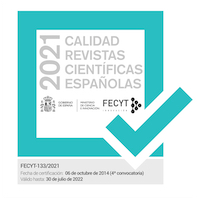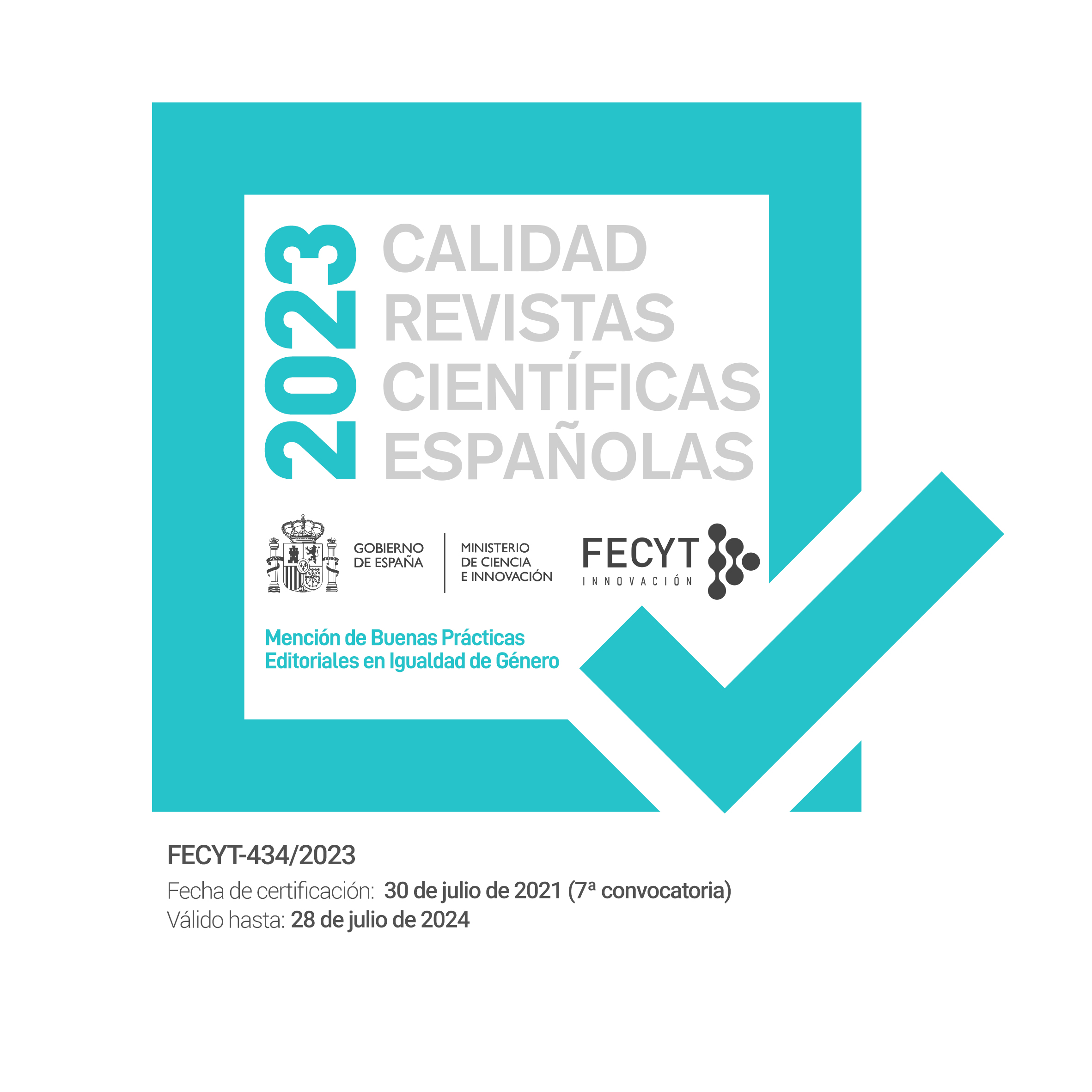“Innocent III (1198-1216) and the Old Testament: politics and exegesis in the liberatio domini papae innocentii super facto imperii de tribus electis”
Keywords:
Innocent III, Deliberatio, Old Testament, letters, Philip of Swabia HohenstaufenAbstract
The reseach on Innocent III’s letters is puzzled by the number of his quotations of the Old Testament.This article will examine the pope’s exegetical method in the Deliberatio domini papae Innocentii super facto imperii de tribus electis. Innocent himself ordered this collection of his letters to be made. At the very least, he read the letters and corrected them, selected the Biblical quotations and commented them, so that they reflect his ideology and Biblical learning. Written from 1198 to 1209, the letters express the pope’s strong opposition to the election of Frederic, the emperor Henry VI Hohenstaufen’s (d.1197) son, or of Philip of Swabia, Henry VI’s brother. Fearing the Hohenstaufen’s imperialistic policies in Italy, the pope supported the
candidacy of the Welf Otto of Brunswick, the nephew of Richard the Lionheart (d.1199) and John Lackland. In order to convince the German electors to elect Otto, the pope quoted and commented the Old Testament, reinforcing his exegesis by means of Canon Law. This discussion of Innocent’s exegetical method is placed in the frame of the evolution of twelfth century Biblical exegesis, from St. Bernard to Andrew of St Victor
and the Parisian schools where Innocent had studied theology.
Keywords: Innocent III; Deliberatio; Old Testament; letters; Philip of Swabia Hohenstaufen.
References
Arquillière, Henri Xavier. L'augustinisme politique: essai sur la formation des théories politiques du Moyen-Age. París, 1972.
Baldwin, John W. "Tibi et regno tuo specialiter nos teneri fatemur: Innocent III, Phillip Augustus and France." Innocenzo III, Urbs et Orbis 2. Roma, 1998.
Bat Sheva, Albert. “The Carolingian Bishops (789-845). A Collective Leadership.” Leadership in Times of Crisis. Ramat Gan, 2007.
Berndt, Rainer. Bibel und Exegese in der Abtei Saint Victor zu Paris. Form une Function im europäisschen Raum. Münster, 2009.
Berndt, Rainer. André de Saint-Victor ( 1175), exégète et théologien. Turnhout, 1989.
Blumenthal, Uta Renate. The Investiture Controversy: church and monarchy from the ninth to the twelfth century. Philadelphia, 1982.
Bolton, Brenda M. "Philip Augustus and John: Two Sons in Innocent III’s Vineyard." Studies in Church History Subsidia 9 (1991).
Bolton, Brenda M. “Reflections on Innocent’ s III providential Path.” Urbs et Orbis, Atti des Congresso Internazionale. Vol. I. Roma, 2003.
Bolton, Brenda. "Except the Lord keep the city: Towns in the Papal States at the Turn of the Twelfth Century." Church and City 1000-1500. Essays in Honor of Christopher Brooke (1992).
Brown, Peter Robert L. “Saint Augustine.” Trends in Medieval Political Thought. Oxford, 1965.
Canning, Joseph. "Power and the Pastor: A Reassessment of Innocent III’s Contribution to Political Ideas." Pope Innocent III and his World (Ashgate: Hofstra University, 1999). Aldershot, 1999.
Canning, Joseph. A History of Medieval Political Thought 300-1450. London, 1996.
Cowdrey, Herbert Edward John. The Register of Pope Gregory VII 1073-1085. Oxford, 2002.
Dahan, Gilbert. L'exégèse chrétienne de la Bible en Occident médiéval, XIIe-XIVe siècle. París, 1999.
Dahan, Gilbert. Les intellectuels chrétiens et les juifs au moyen âge. París, 1990
De Jong, Mayke. "The empire as ecclesia: Hrabanus Maurus and biblical historia for rulers." The Uses of the Past in the Early Middle Ages. Cambridge, 2000.
De Jong, Mayke. "Power and humility in Carolingian society: the public penance of Louis the Pious." Early Medieval Europe 1.1 (1992).
De Lubac, Henri. Exégèse médiévale: le quatre sens de l'écriture. Paris, 1961.
Duby, Georges. Le dimanche de Bouvines. París, 1973.
Fliche, Augustin, and Martin, Victor. “Histoire de l’Eglise des origines jusqu’à nos jours.” L’Église au pouvoir des laïques (888-1057). Paris, 1948.
Fliche, Augustin. Histoire de l’Église depuis les origines jusqu’à nos jouri. La Réforme grégorienne et la conquête chrétienne (1057-1125). Vol. 8. Paris, 1950.
Godman, Peter. Poetry of the Carolingian renaissance. London, 1985.
Hamilton, Sarah. “The Unique Favour of Penance: the Church and the people, c. 800–c. 1100.” The Medieval World. Linehan, P., Nelson, J. L. Eds. London, New York, 2001.
Haverkamp, Alfred. Medieval Germany 1056-1253. Oxford, 1988.
Haverkamp, Alfred. Medieval Germany. Oxford, 1992.
Henderson Burns, James. The Cambridge history of medieval political thought c. 350-c. 1450. Vol. 1. Cambridge University Press, 1988.
Inkamp, Wilhelm. Das Kirchenbild Innoccenz’ III, 1198-1216. Päpste und Papsttum. Stuttgart, 1983.
Kempf, Friedrich. "Papstum und Kaisertum bei Innocenz III. Die geistigen und rechtlichen Grundlagen seiner Thronstreitpolitik." Miscellanea Historiae Pontificiae 19/58. Roma, 1954.
Langton, Stephen. Commentary on the Book of Chronicles. Ramat Gan, 1978.
Leclercq, Jean. Bernard of Clairvaux and the Cistercian spirit. No. 16. Cistercian Studies. Kalamazoo, 1976.
Leyser, Karl J. "The polemics of the papal revolution." Trends in medieval political thought. Oxford, 1965.
Moore, John Clare. “To Root up and to Plant. Introduction.” Innocent III and His World. Moore, John Clare. Ed. Aldershot, 1999.
Pacaut, Marcel. Frédéric Barberousse. Paris, 1967.
Pennington, Kenneth. Popes and Bishops: The Papal Monarchy in the Twelfth and Thirteenth Centuries. Philadelphia, 1981.
Quillet, Jeannine. "Saint Bernard et le pouvoir." Mediaevalia christiana, XIe–XIIIe siècle: Hommage à Raymonde Foreville de ses amis, ses collègues et ses anciens élèves. París, 1989.
Robinson, Ian Stuart. Henry IV of Germany. Cambridge, 1999.
Robinson, Ian Stuart. The Papacy 1073-1198. Continuity and Innovation. Cambridge, 1990.
Sapir Abulafia, Anna. Christians and Jews in the Twelfth-century Renaissance. London and New York, 1995.
Schmidt, Hans-Joachim. "The Papal and Imperial Concept of plenitudo potestatis: The Influence of Pope Innocent III on Emperor Frederick II." Moore, Pope Innocent III and his World. Aldershot, 1999.
Smalley, Beryl. The study of the Bible in the Middle Ages. Notre Dame, 1970.
Ullman, Walter. The Growth of Papal Government in the Middle Ages: A study in the ideological relation of clerical to lay power. London, 1955.
Van Cleve, Thomas Curtis. The Emperor Frederick II of Hohenstaufen, Immutator Mundi. Oxford University Press, 1972.
Verdier, Raymond. Le Serment, I, Signes et fonctions. Paris, 1991.
Wallace Hadrill, John Michael. "The via regia of the Carolingian age." Trends in medieval political thought (1965).









